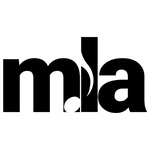Music libraries are accustomed to doing business with traditional vendors to acquire printed scores from well-known publishers. But now they are receiving scores in PDF or other digital files more frequently than ever before. Much of this music is available in file format only, and is requested and supplied directly from the composer. Non-print scores can represent a significant percentage of new music to be acquired; therefore, the format cannot be ignored by libraries. Producing and distributing scores in digital format has an impact on every aspect of the library process. Acquisitions, cataloging, archiving and patron use all are affected. In addition, composers who provide these scores have differing points of view about access. The approach to, and use of non-print scores can be very different from the way printed music is treated.
This paper will summarize research conducted in 2017, consisting of a survey of music technical services librarians on their policies for processing and archiving non-print scores. Analysis of the data gathered in that survey includes issues of discovering and acquiring the works, cataloging and contributing MARC records to OCLC, formatting and archiving the files, along with the decision to print, bind and shelve copies of the music. Permission for use and patron access through the online catalog will be examined.
Chuck Peters, Indiana University
10:45am, 30 minutes

